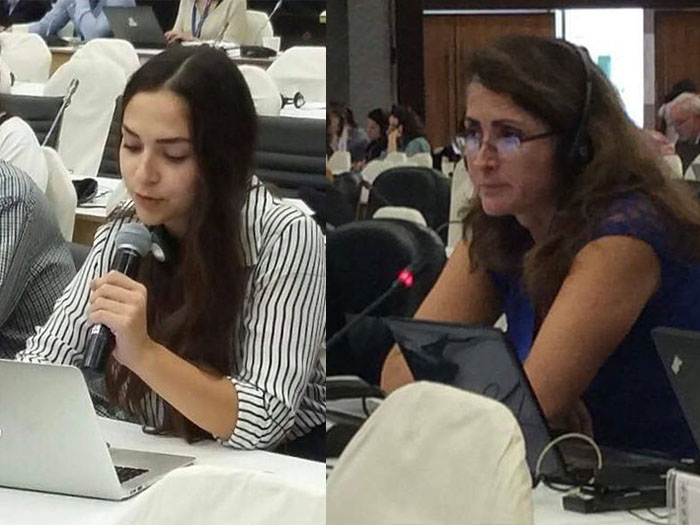Science has been given the floor

It is the third day of this very exciting two weeks of global negotiations and the heat is definitely on!
An important aspect of the work that is going on here is the collective development of language and policies that can be followed by all the states that are parties to the Convention on Biodiversity (CBD). Parties work in groups organized by topics such as risk assessment, resource mobilization and other important aspects of implementation of the Cartagena and Nagoya Protocols.
It is therefore important that NGO s like the Cornell Alliance for Science be present in order to give evidence and science-based advice to parties as they make and concretize their decisions in official documentation.
Finally, today, on the third day, has science been given the floor at COP13.
In the plenary session, an NGO delegation comprising the Public Research and Regulation Initiative (PRRI), International Service for the Acquisition of Agri-biotech Applications (ISAAA), and the Cornell Alliance for Science made an important statement in favor of science. Diana Rabago, a biotechnology student, spoke on behalf of us all:
“I am a Mexican biotechnology student and I am proud to be here with a large international group of students, the next generation of scientists who want to help solve the challenges of tomorrow. In this context, we invite the honorable delegates to speak with us about science and ongoing research. As the PRRI delegation, we speak more than 20 languages and represent long expertise and experience from many fields. We, the younger generation of biotechnology scientists, are pleased that Article 16 of the Convention recognizes that transfer of biotechnology is essential to the goals of the Convention, and that Article 19 instructs that the parties shall engage in biotechnology transfer. Madame Chair, the Biosafety Protocol can help achieve that goal, because it offers countries that do not yet have biosafety regulations in place a mechanism for informed decision making on living modified organisms (LMOs).”
Luckily, ISAAA was also given the floor to make a statement, also in strong favor of public dissemination of science and the potential for biotechnology to save lives. Scientist Mahalechumy Arujanan spoke on their behalf:
“Public awareness initiatives in the developing world should focus on how modern biotechnology can play a role in addressing food security, climate change and sustainable development and not just in creating awareness on biosafety regulations. Creating awareness on biosafety does not make sense without providing the basic information on modern biotechnology. It is important to understand the science of modern biotechnology and there is a need to challenge the original presumption that engineered plants are inherently and intrinsically more dangerous to biodiversity than conventionally bred plants, or for that matter, introduced species “
A major discussion item at this meeting has been the call by certain activist NGOs and a few national parties for a moratorium on gene drive and other new breeding techniques on the basis of the precautionary principle. Lucia de Souza, a scientist and 2016 Cornell Alliance for Science Global Leadership Fellow, gave important advice to parties in a working group meeting dedicated to this topic. She advised the audience that:
“A blanket ban on a technology that is established without scientific justification constitutes irresponsible governance. Blanket bans disregard the potential benefits of the technology and, in the case of gene drives, a blanket ban disregards the fact that gene drives occur in nature without human intervention.”
Her comments and many like them are taken into strong consideration as countries make decisions on how to proceed. We have high hopes that our voice will continue to be heard during these important negotiations.
